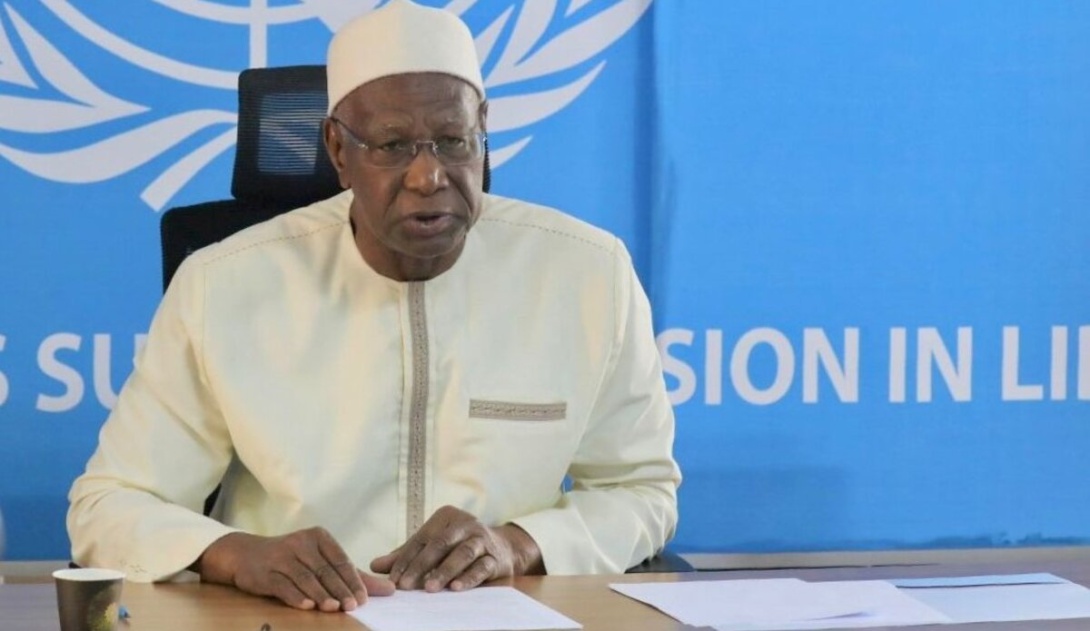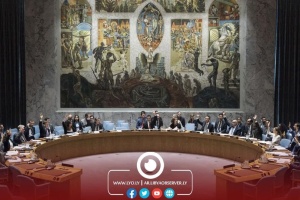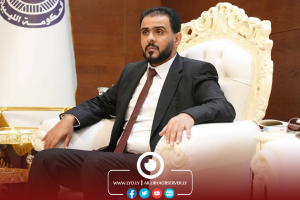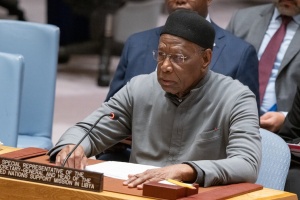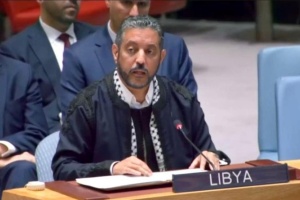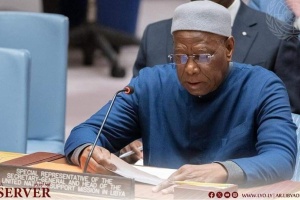The UN envoy to Libya Abdoulaye Bathily gave a briefing on the situation in the country at the Security Council on Monday, when he started by expressing condolences to the families of immigrants who lost their lives in the sinking of the boat that sailed from Tobruk and sank in the Mediterranean Sea last Wednesday, saying this tragedy is a brutal reminder of their collective duty to find a solution to all aspects of the crisis in Libya that has an impact in other parts of the world.
Bathily acknowledged in his briefing the efforts of the 6+6 Joint Committee, which led to devising election laws in Bouznika this month, as an important step forward, but said they were not sufficient to resolve the most contested issues and enable successful elections.
He said that the laws approved by the 6+6 Committee faced some reactions, especially those of the High National Elections Commission, adding that upon studying the text of the laws, UNSMIL concluded that the politically contested issues are the eligibility criteria for candidates for the presidential election, the provision for a mandatory second round of the presidential election even if a candidate secures more than 50 percent of the votes required to win, the provision stipulating that if the first round of presidential elections fails, the parliamentary elections will not take place, and the provision requiring the establishment of a new interim government before elections can take place.
Bathily said that as a result of intensive advocacy, the draft law makes it possible to secure at least 20 percent seats for women in the HoR. However, it allocates only 6 seats for women out of 90 in the Senate.
"The eligibility criteria for presidential elections, the linkage between presidential and parliamentary elections, and the issue of forming a new unified government are highly contentious and require, first and foremost, a political agreement among the major stakeholders and key constituencies across the Libyan political spectrum. Short of this, related provisions in the laws would surely remain unimplementable and might even trigger a new crisis." He explained.
He said that in order to avoid that gloomy prospect for the people of Libya and the region, it is now crucial that steps are taken to overcome the persistent disagreements over these longstanding issues.
"The main Libyan decision-makers must, acting in a spirit of compromise, put the greater interests of the Libyan people above all else, and come to a political agreement on these matters. Without such compromises, the contested issues are likely to take the electoral process into a cul de sac, like in 2021, which will result in further polarization and even the destabilization of the country. I therefore call on this Council to increase pressure on the relevant actors and use your collective and individual leverage to ensure that they demonstrate the required political will to take their country to successful elections." Bathily remarked.
He said that on the security front, Tripoli has remained relatively calm, as ongoing operations conducted by the Government against drug, weapons, fuel, and human trafficking activities in Al-Zawiya and surrounding areas, have prompted allegations of political motives and therefore could risk undermining the relative stability in "Tripolitania."
He said in the south of Libya, the conflict in Sudan has raised concerns about its potential destabilizing effects on the region, especially regarding a potential influx of refugees and cross-border movements of armed elements, adding that UNSMIL is monitoring the situation closely, and he has assured the Libyan authorities that the United Nations stands ready to support, emphasizing the need to provide refugees fleeing war with humanitarian protection.
"Moreover, there is a widespread fear amongst Libyans that, should the conflict in Sudan last longer, its spill-over consequences might pose a new set of challenges to the stability of Libya and the region. In this regard, the withdrawal of foreign forces, foreign fighters and mercenaries from Libya, on which we have been working very actively, would remain elusive." He said.
On the economic front, Bathily welcomed the conclusion of the International Monetary Fund (IMF) Article IV Consultation with the Libyan authorities, after a decade-long hiatus, saying that many of its recommendations reinforced calls on the Libyan leadership to enhance equitable, accountable, and transparent State resource management and oversight and to make tangible progress in unifying of the Central Bank of Libya.
"These issues are pertinent to the efforts to build consensus on elections, including on establishing a level playing field for all candidates. UNSMIL will support the implementation of the recommendations agreed upon between the IMF and Libya, including through the economic working group of the Berlin process, and ensure that the implementation progresses in a manner that adds momentum to the political track." He explained.
Bathily indicated that the political process in Libya has once again reached a critical stage, reiterating that successful elections require not just a legal framework, but also a political agreement that ensures buy-in and inclusion of all major stakeholders.
"By my next briefing to the Council, I intend to intensify negotiations and convene major stakeholders or their trusted representatives to reach a final settlement on the most contentious issues, make the draft laws implementable and enable successful elections with an inclusive political agreement." He added.
"While we all endorse calls for non-interference and the principle of a Libyan-Libyan solution as a basis of any effective instrument for sustainable peace and stability, those catchwords must not remain slogans to hide an agenda for prolonging the status quo at the expense of the aspirations of the Libyan people for legitimate institutions and prosperity." He further explained.
Bathily said that prolonged status quo is detrimental to the interests of the people of Libya and it is fraught with disaster for Libya and its neighbours, adding that it is imperative that your commitment to the mandate you entrusted to UNSMIL is translated into increased and targeted pressure on actors, truly speaking with one voice and acting accordingly to remove the spoilers out of the process towards Libya’s full recovery.
He reiterated his call to all regional and international partners to help truly the Libyan leaders work together for the recovery of their motherland and answer the call of the ordinary Libyan citizens vying for peace, prosperity and national reconciliation.

